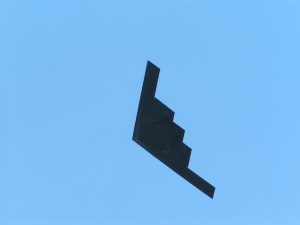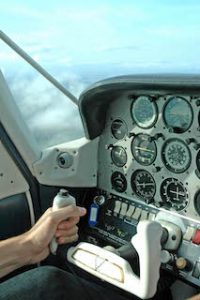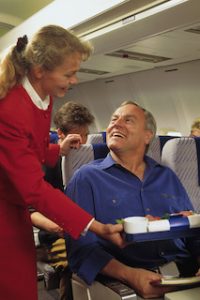Courses Needed For An Aspiring Pilot
 In the highly competitive field of aviation, standing out as a qualified and capable pilot is essential for career advancement. Two courses that significantly enhance a pilot’s credentials are the Multi-Crew Cooperation (MCC) course and the Jet Orientation Course (JOC). These courses not only equip pilots with vital skills for operating in multi-crew environments and handling jet aircraft but also make them more attractive to hiring professionals at reputable international airlines. This article delves into the benefits of completing an MCC and JOC course and explores why these qualifications are highly valued in the aviation industry.
In the highly competitive field of aviation, standing out as a qualified and capable pilot is essential for career advancement. Two courses that significantly enhance a pilot’s credentials are the Multi-Crew Cooperation (MCC) course and the Jet Orientation Course (JOC). These courses not only equip pilots with vital skills for operating in multi-crew environments and handling jet aircraft but also make them more attractive to hiring professionals at reputable international airlines. This article delves into the benefits of completing an MCC and JOC course and explores why these qualifications are highly valued in the aviation industry.
Importance of MCC and JOC in modern aviation
The aviation industry is increasingly focused on safety, efficiency, and teamwork. As aircraft become more advanced and operations more complex, the ability to work effectively as part of a multi-crew team and operate jet engines proficiently is crucial. MCC and JOC courses address these needs by providing comprehensive training that prepares pilots for the demands of modern commercial aviation.
Multi-Crew Cooperation (MCC) course
1) What is an MCC course?
The MCC course is designed to train pilots in the principles of working as part of a multi-crew team. It emphasizes communication, coordination, decision-making, and teamwork. The course aims to ensure that pilots can operate safely and efficiently in a multi-crew environment, which is essential for commercial airline operations.
2) Key components of MCC training
-
- Crew Resource Management (CRM): Training in effective communication, leadership, and teamwork.
- Standard Operating Procedures (SOPs): Familiarisation with airline-specific procedures and protocols.
- Decision-making: Techniques for making sound decisions under pressure.
- Problem-solving: Strategies for handling in-flight issues and emergencies.
- Simulated flight scenarios: Practice in realistic flight scenarios to enhance coordination and response skills.
Jet Orientation Course (JOC)
1) What is a JOC?
The Jet Orientation course prepares pilots for the transition from propeller-driven aircraft to jet-powered planes. It focuses on the unique characteristics and operational procedures of jet aircraft, providing the knowledge and skills needed for safe and efficient jet operations.
2) Key components of JOC training
-
- Jet aircraft systems: Detailed study of jet engines, avionics, and other essential systems.
- High-speed flight dynamics: Understanding the principles of high-speed flight and jet performance.
- Flight Management Systems (FMS): Training in the use of automated systems and advanced avionics.
- Jet handling techniques: Techniques for controlling jet aircraft during various phases of flight.
- Simulator training: Hands-on practice in a flight simulator to master jet-specific manoeuvres and procedures.
Benefits of completing an MCC and JOC course
1) Enhanced Safety and Operational Efficiency**
-
- Improved teamwork: MCC training enhances a pilot’s ability to work as part of a team, leading to better coordination and communication in the cockpit. This teamwork is critical for ensuring flight safety and operational efficiency.
- Advanced skills: JOC training equips pilots with the skills needed to handle the complexities of jet aircraft, including high-speed dynamics, advanced avionics, and automated systems. These skills are essential for maintaining safety and efficiency in jet operations.
- Preparedness for emergencies: Both courses emphasise problem-solving and decision-making in emergency situations, ensuring that pilots are well-prepared to handle any issues that may arise during flight.
2) Increased Employability
-
- Attractive to airlines: Airlines prefer to hire pilots who have completed MCC and JOC training because these courses ensure that candidates have the necessary skills for multi-crew and jet operations. Pilots with these qualifications are seen as more capable and reliable.
- Competitive edge: In a competitive job market, having MCC and JOC credentials can set a pilot apart from other candidates. These qualifications demonstrate a commitment to professional development and a high level of proficiency in key areas of aviation.
- Higher starting positions: Pilots with MCC and JOC training may be eligible for higher starting positions and faster career progression within an airline, as they are already equipped with essential skills for advanced operations.
3) Foundation for Advanced Training
-
- Preparation for type rating: The skills and knowledge gained from MCC and JOC training provide an excellent foundation for type rating courses on specific jet aircraft. This preparation is crucial for pilots who aim to operate particular aircraft models within an airline.
- Smooth transition to airline operations: Completing MCC and JOC courses ensures a smoother transition to airline operations, as pilots are already familiar with the principles of multi-crew cooperation and jet handling. This familiarity reduces the learning curve and enhances operational readiness.
4) Enhanced confidence and professionalism
-
- Confidence in abilities: The comprehensive training provided by MCC and JOC courses boosts a pilot’s confidence in their abilities to handle multi-crew environments and jet operations. This confidence translates to better performance and decision-making in real-world scenarios.
- Professional development: MCC and JOC courses contribute to a pilot’s overall professional development, enhancing their knowledge, skills, and competence. This development is crucial for long-term career growth and success in the aviation industry.
Why hiring professionals prefer pilots with MCC and JOC qualifications
1) Assurance of competence
-
- Verified skills: Hiring professionals value MCC and JOC qualifications because they provide assurance that the pilot has undergone rigorous training and has demonstrated competence in essential areas of aviation. This verification is crucial for maintaining high safety and operational standards within an airline.
- Reduced training costs: Airlines can reduce their training costs by hiring pilots who already have MCC and JOC credentials. These pilots require less additional training, making them more cost-effective hires.
- Improved safety record: Pilots with MCC and JOC training contribute to an airline’s overall safety record, as they are better prepared to handle complex operations and emergencies. This preparedness is crucial for maintaining a positive safety reputation.
2) Alignment with Airline Standards**
-
- Standardised procedures: MCC and JOC courses align with industry standards and best practices, ensuring that pilots are familiar with the procedures and protocols used by commercial airlines. This alignment makes it easier for airlines to integrate new hires into their operations.
- Cultural fit: Pilots with MCC and JOC training are more likely to fit into an airline’s operational culture, as they have been trained in the principles of teamwork, communication, and professionalism. This fit is important for maintaining a cohesive and efficient flight crew.
3) Positive Impact on Airline Performance
-
- Operational efficiency: Pilots with MCC and JOC qualifications enhance an airline’s operational efficiency by contributing to smoother and more coordinated flight operations. This efficiency can lead to reduced delays, lower operational costs, and improved customer satisfaction.
- Brand reputation: Airlines that hire highly qualified pilots with MCC and JOC training can enhance their brand reputation by demonstrating a commitment to safety and excellence. This reputation is important for attracting passengers and maintaining a competitive edge in the market.
Path to completing MCC and JOC courses
1) Choosing the right training provider
Selecting a reputable training provider for MCC and JOC courses is crucial. Pilots should consider factors such as the quality of training, the experience of instructors, the availability of advanced simulators and aircraft, and the institution’s accreditation.
2) Structured training programs
Many flight schools offer structured training programs that integrate MCC and JOC courses. These programs provide a seamless pathway for pilots to acquire the necessary qualifications efficiently, often culminating in eligibility for advanced training and career opportunities.
3) Financial planning
Completing MCC and JOC courses can be costly. Pilots should plan their finances carefully, considering tuition fees, flight hours, examination fees, and living expenses. Scholarships, grants, and financing options may be available to help manage these costs.
Attain your dream flying career
Completing a Multi-Crew Cooperation (MCC) and Jet Orientation Course (JOC) is a strategic move for aspiring pilots who aim to advance their careers in the competitive field of aviation. These courses provide essential training in multi-crew cooperation and jet operations, enhancing safety, operational efficiency, and employability. Pilots with MCC and JOC qualifications are highly valued by hiring professionals at reputable international airlines, as these credentials demonstrate a high level of competence, professionalism, and readiness for advanced operations. By investing in MCC and JOC training, pilots can gain a significant advantage in their career development, opening doors to exciting opportunities and paving the way for long-term success in the dynamic and challenging world of aviation.










